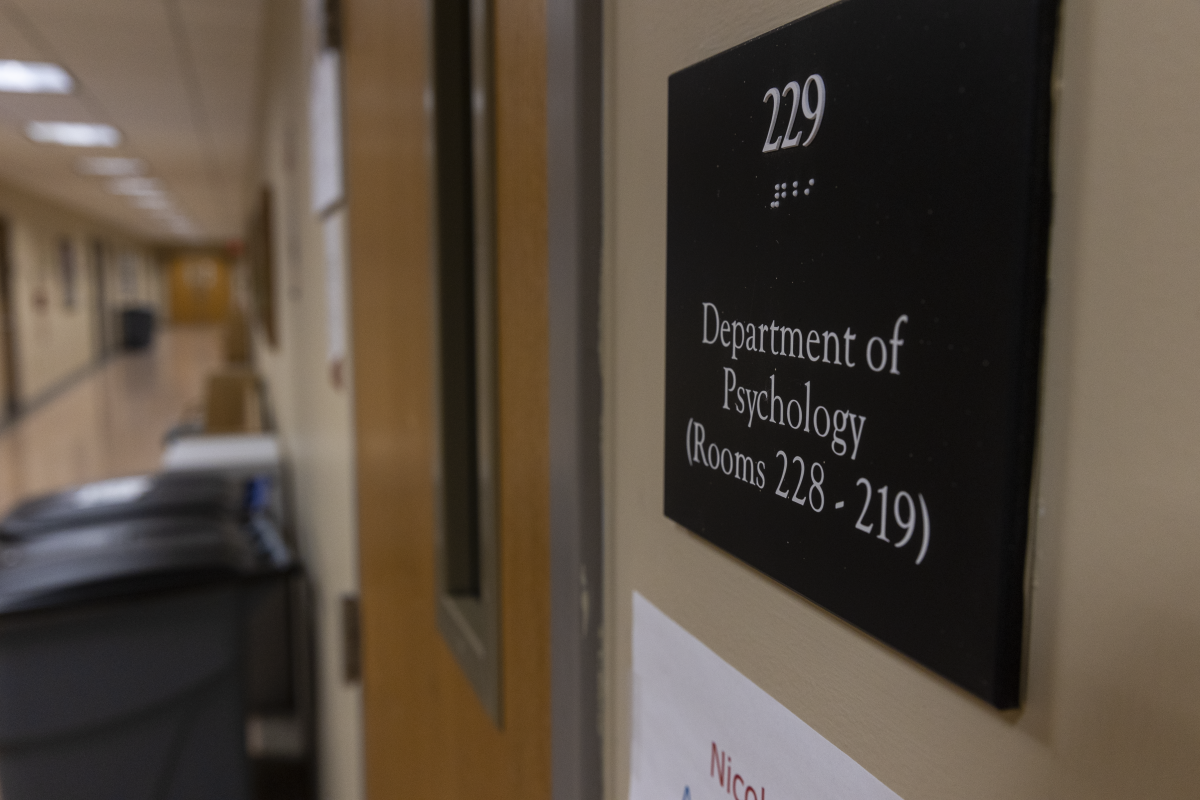Diana Martinez ’23 was in the midst of completing her application to the psychology department’s 4+1 degree program when the department announced that program applications were paused.
Martinez said she went online to complete her application for the program and noticed it had been deleted.
“Now, I have to figure out what to do after I graduate,” Martinez said. “The 4+1 program was one of the biggest reasons why I came here, so it was a big disappointment when they canceled it.”
In an Oct. 25 announcement from the psychology department to all psychology majors, Jodi Mindell, Ph.D., professor of psychology and director of graduate psychology, said all applications and acceptances to the 4+1 degree program for psychology majors were paused for the start of the fall 2022 semester because of St. Joe’s merger with the University of the Sciences. The pause includes the entire master’s program in psychology, including the 4+1 program.
“There’s five psychology faculty at the University of the Sciences that we expect will be joining our department,” Mindell said in an interview with The Hawk. “They have, currently, a master’s in health psychology, similar to ours, but different enough that it’s going to take a little bit of thought to put the two together.”
4+1 graduate programs are master’s programs where students start earning their graduate degrees during their senior year and complete their undergraduate and graduate work in five years. These programs are only available for current undergraduate students at St. Joe’s.
Once enrolled in the 4+1 program, students take both undergraduate and graduate courses during their senior year with three graduate courses per semester. In their fifth year, they take two graduate courses per semester to complete their graduate degree.
There are no changes to the 4+1 program for psychology students who are currently enrolled, and they will be able to finish the program, Mindell said. Currently there are 12 psychology students enrolled in the 4+1 program, with five in their first year of the program and seven in their second year.
Mindell said she does not yet know exactly how quickly decisions about the program’s future and its potential replacement will be made since the department has to decide as a combined group post-merger and get approval through university governance.
“I think it will take at least two years before a program would be [reinstated] because we merge next September,” Mindell said. “We can’t make decisions in three weeks to kick a program for the following year. I can’t imagine it would be quicker than two years, but I don’t know.”
Mindell said students who wanted to apply to the 4+1 program but cannot anymore can seek other available options either on campus, in the Philadelphia area or around the country. Mindell also encouraged students to meet with her to discuss any options.
“We as faculty are here to support students in every way that we can,” Mindell said. “We are really very fortunate that we have a robust program, we have the clinical concentration, we have an industrial organizational psychology minor, we have the internship program and we have so many choices for students.”
Those choices include the university’s new clinical and mental health counseling program, which launched this year, or the master’s program in applied behavioral analysis, Mindell said.
In the meantime, Keyon Williams ’23, who said he had planned to apply to the program, is figuring out his next move.
“It’s one of those end goals that you have set, and then when it’s out of your control and you can’t do anything about it, you have to adapt,” Williams said.














































